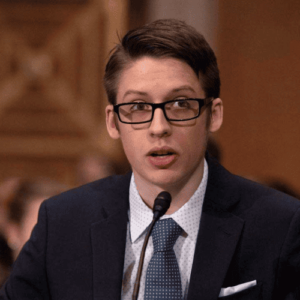By Ethan Lindenberger for Unity Consortium
One of the unspoken struggles of the scientific community is turning academic language into something people can understand. Taking complicated ideas and turning them into digestible concepts. It’s not easy, because a lot of topics on the surface seem really simple, but when you go a little deeper things can get…messy.
Take vaccines for example. On the surface, vaccinations are a simple topic that everyone should agree about, right? Well like I said, things are a little more messy in the real world. Despite the simplicity of immunity, and a small scale introduction to a virus, vaccines are a point of discussion that’s riddled with confusion and lies.
When somebody begins researching a topic like vaccinations, often the simplicity they need to understand the topic isn’t found on a reliable, scientific source. The simplicity, that non-academic language, is found in misinformation. “Vaccines cause autism, they’re full of toxins it just makes sense!” And then, to back up these claims, you might hear, “don’t take it from me, Susan vaccinated her son and look at him now.”
This happens all the time in antivaxx circles. Interviews with distraught mothers and heartbroken fathers who talk about the irreversible damage of vaccines. You see stories of children that, once immunized, lose the fire and life in their eyes. All the while contrasting this, we have the scientific community published extensive studies with hundreds of thousands of participants. Definitively proving that vaccines are safe. So in the end, these people see that they’re mistaken right!?
Well, no. We all know how this works out, the studies and extensive research is ignored, and conspiracy theories are believed over any data. Most frustrating however, is that people trying to understand the topic find an overwhelming amount of lies that seem so convincing. They are bombarded with insults and attacks, telling them “you’re a bad mother if you vaccinate your child. You’re an awful father to put your children in danger.” When you see those defending vaccines, often it’s through the lens of data that is, again, messy. Complicated, confusing, hard to follow, and less convincing in the long run.
I paint this picture for you, because the fight to find simplicity in a complicated topic is one that is, in itself, simple. Scientists, legislators, and organizations across the world have spent too much time overthinking and less time finding real solutions, and the solutions they’ve been missing in their search for simplicity is found in one word; stories.
Stories are the key to making a complicated topic simple. Stories are the missing link between academic language and everyday people. Stories are how we have communicated as people for thousands of years, and just because we now have a better understanding of numbers and equations doesn’t make them any less valuable. When we try to explain the power and purpose of vaccinations or any other scientific topic, the stories of those impacted by it are ignored in favor of digits and data.
And on top of that, misinformation and lies are growing because people spreading it are using stories. The stories of people who are suffering at the hands of vaccines, when in reality almost none of that is true.
I saw this for myself when an antivaxx sigil was hosted to pay tribute to those that lost their lives to vaccines. Hundreds of images were lined up with candles to show their loss, and people mourned over the life’s vaccines had taken. It was a sight full of distress and sadness, with people speaking about the importance of fighting the system that was hiding the damage their precious medicines have caused. And in the middle of it all, was an image of me, from 8th grade. I saw my own face with people crying over my untimely death.
I wasn’t dead, obviously, but the sigil was powerful. It was sad and demonstrated how important the antivaxx movement was despite the fact that none of it was genuine. When I shared that my image was falsely included, people claimed I photoshopped it, that I was vaccine injured but didn’t realize it, or that “they were praying for what’s left of my soul.”
This just shows that fighting against these lies can cause people to get upset, and that it’s hard to fight these stories even when they’re not true. But even though it’s hard, our best weapon against lies is to tell stories about people who have actually lost their lives, not to vaccines, but to the diseases they’re meant to prevent. We need to tell stories about misinformation behind false, and explaining with clear language why these lies are false.
And I think most importantly, the stories of young people are extremely important and often overlooked. Because young people can reach their peers, the youth who will make decisions for our futures. And they do that, by telling their stories.

